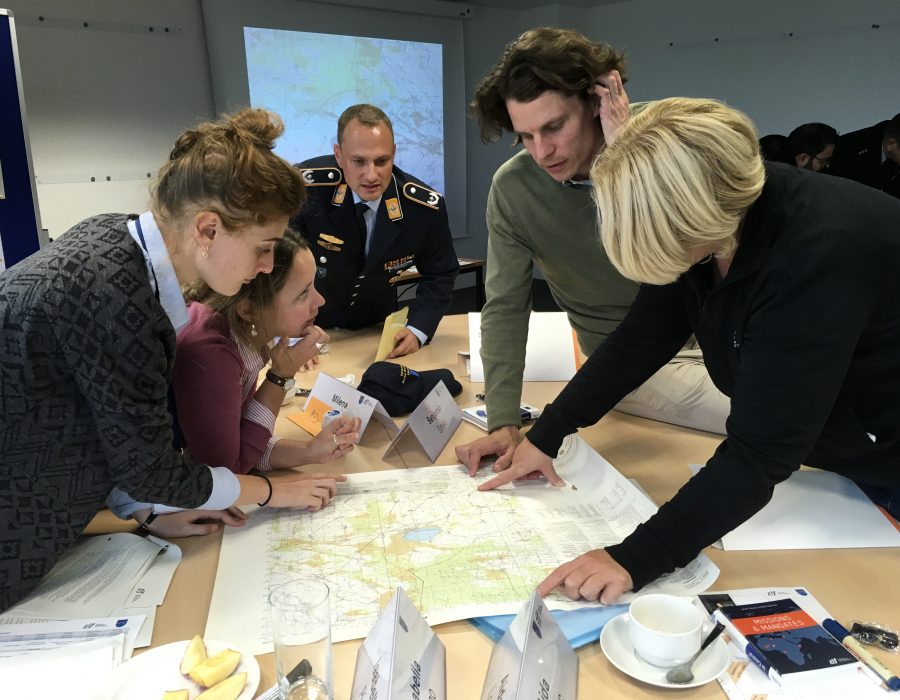Integrated Approach
The “integrated approach” is a guiding principle for our work, which we apply both in our conceptual thinking and in our joint training of civilian, police and military actors.
Definition: Integrated Approach
The integrated approach is one of the underlying principles of German engagement in international crisis and conflict management. It is designed to contribute to sustainable peace and international security by facilitating the effective prevention or management of violent conflicts. In this context, the purpose of the integrated approach is to:
- coordinate and, through pooling or division of labour, to optimally employ
- resources of diplomacy, development cooperation, security policy and humanitarian aid,
- across departmental, ministerial or institutional boundaries.
When pursuing a integrated approach, the challenge is to promote a suitable culture of cooperation among all participants. This begins with an open and respectful attitude on the part of the staff of peace operations, and extends to formalized and institutionalized structures and joint programs. Senior-level staff are expected to promote and actively shape the comprehensive approach, while at an operational level the comprehensive approach should be practiced and implemented on a daily basis.
The EU and Its Integrated Approach
In its fullest application, the integrated approach can mean integrated (i.e. joint) action of participants.
The EU with its aim of consolidating the civilian and military tools of its member states and institutions in a integrated approach is a good example. Externally, the EU also employs a integrated approach when coordinating with other national and international conflict management actors.
Training: Joint Deployment Preparation
The integrated approach also plays an important role in our training. Peace operations often feature a broad spectrum of mandated tasks, which involve civilian, police and military components and require these components to cooperate closely. Formats for the joint preparation of civilian, police and military actors for their work in peace operations are devised and implemented within the framework of the German Training Partner Platform (TPP), which was founded in 2008.
 ©ZIF
©ZIF
In joint TTP training courses, such as the Leadership Course, we identify and discuss the differences and similarities between military, police and civilian forces in peace operations. In this way, we seek to promote open minds and practice-oriented competences for effective cooperation.
The Comprehensive Generic Training Peace Operations (CGTPO) is yet another example of how ZIF brings together participants with civilian, police and military profiles. The course fosters a comprehensive understanding of security, as well as cooperation between the many com-ponents of peace operations. This is embodied by a team of trainers with diverse professional back-grounds.
For more information about training partnerships, visit the Training Partner Platform website.